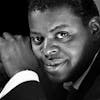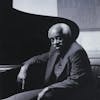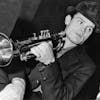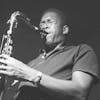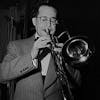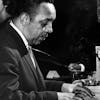Jazz Piano Skills: Past and Future
This Jazz Piano Skills Podcast Episode explores the Past and Future of Jazz Piano Skills. From 2019 through 2023 lessons explored essential jazz piano skills. What's next?
Welcome to Jazz Piano Skills. It's time to discover, learn, and play jazz piano!
Today’s podcast will be quite different from what I typically do regularly. We won’t study any specific jazz piano skill, analyze and digest a tune, or visit with a special guest. Instead, I want to devote today’s podcast episode to looking back over the past four-plus years - a historical summary of how Jazz Piano Skills got started, the various jazz piano skills taught, the teaching approach used, and why. I then want to look forward to the future of Jazz Piano Skills and share the format and approach I will use starting with the new year. I am very excited because it’s our opportunity to take a breather to look back and encapsulate what we have accomplished, AND to look forward so we can get fired up about and prepare for the next chapter of our amazing jazz piano journey!
So sit back and enjoy this podcast episode: Jazz Piano Skills: The Past and Future!
Happy New Year,
Dr. Bob Lawrence
Jazz Piano Skills
Warm Regards,
Dr. Bob Lawrence
President, The Dallas School of Music
JazzPianoSkills
AMDG
Dr. Bob Lawrence 0:32
Welcome to jazz piano skills. I'm Dr. Bob Lawrence. It's time to discover, learn and play jazz piano. Well, I hope everyone had a wonderful Christmas yesterday join family and friends. I had a great Christmas just hanging out with my family. Enjoying way too much, I mean way too much food, and of course ton of laughs It's hard to believe it's December 26, with the year quickly coming to an end. Likewise, it's it's hard to believe that this is the last jazz panel skills podcast episode for the year 23. I guess the old saying is indeed true. Time flies when you're having fun. Not only has it been a ton of fun exploring jazz piano this past year, but I think you all would agree. Right? I think you will all agree that it's been a challenging year, overwhelming at times, and extremely frustrating, which is absolutely wonderful, because these are all signs of progress. So congrats on completing an amazing here. today's podcast is going to be quite different from what I typically do on a regular basis. We're not going to be studying any specific jazz piano skill, or analyzing and digesting a tomb, or visiting with a special guest. Instead, I want to devote today's podcast episode to looking back over the past four plus years. A historical summary, if you will, of how jazz piano skills got started. The various jazz panel skills taught the teaching approach used and why I then want to look forward to the future of jazz piano skills and share with you the format and approach I will be using starting with the new year. I am very excited because it's our opportunity to take a breather today in order to look back and encapsulate what we have accomplished and to look forward so we can get fired up about and prepare for the next chapter of our amazing jazz journey. So grab your coffee, sit back and enjoy this podcast episode. jazz piano skills, the past and future. For years, years, my students at the Dallas School of Music encouraged me to document my jazz piano lessons. I would constantly hear comments like Bob, you need to write a jazz book or Bob you should record your lessons and make them available for students to access. Or Bob, you should think about doing an audiobook. All great ideas. And honestly, I was flattered that students thought I was even capable of doing any one of these endeavors. So one day, one day feels like yesterday. One day I came into my office at the Dallas School of Music. I shut my office door, sat at my desk and tried to figure out how to record an audio file on my computer. I had a simple little microphone, I plugged it into my computer, turned it on and recorded a 20 minute impromptu talk on how to how to practice scales properly. I thought well, when it was all done, I thought well, no, that wasn't that painful. I think I'll share it with students to see what they think and to see if they would find something like this to be beneficial. So I did just that I I started sharing my talk on practicing scales with students. Well, in doing so, i i opened as the old saying goes I opened a huge, huge can of worms. Like keep in mind All I was planning on doing wasn't, was an occasional recording about a specific jazz piano skill with no specific timeframe, one a month one every two months, or whenever I felt compelled to do one, or had the time to do one to share just in order to just share, share the recordings with my students at the Dallas School of Music only. That's it. Nothing more. Just a nice, easy 20 minute talk in and out, share with my students at the Dallas school music, and then go home to watch a baseball game. Nice. But after sharing it with my students one by one starting with Brad hornbaker. Brad, just a little shout out to you my man. One by one. Everyone started saying hey, you need to you need to do a podcast. Of course my immediate response was a podcast. What's a podcast? I don't think so. I was I was stressed out enough trying to plug a microphone into my computer to produce an audio file. Well, after some convincing, actually more like a hounding from my students. I thought all right already. All right, what the heck I'll get I'll give it a try. I figured worst case scenario, I give it a try for a few weeks. And if some folks start to listen Great, then if not, I can only shut it down and keep the recordings internal for my students at the Dallas School of Music. So I took that impromptu recording of how how to practice scales correctly, and launched jazz piano skills. I had no idea. I truly I had no idea how poorly produced that little 20 minute lesson was. If I had, I would never had published it or used it to launch a podcast. In fact, it is still available at jazz piano skills as the very first podcast episode. I have considered on many occasions to delete it, but always ended up deciding to leave it. After all. It was the beginning of jazz piano skill. And I have some sentimental attachment to it because it was the one I initially shared with my students at the Dallas School of Music. So it stays and will always stay serving as a pleasant reminder of how teachers if they pay attention and listen, end up learning from and are profoundly impacted from their students. So November 19 2019, jazz piano skills was officially announced and launched with my first episode how to practice scales correctly, which was soon followed by chords by family chords by key traditional shell voicings and contemporary shell voicings. Now let me pause here for a second and illuminate the importance of harmony when it comes to starting your jazz journey. It is no accident that when jazz panel skills launched, I focused on harmonic development. First, again, I focused on harmonic development first chords by family courts by key traditional shell voicings contemporary shell voicings all of these episodes are stressing the importance of having a command of chords voicings with which is without question the first and most important step when embarking upon the study of jazz. In fact, I think it is safe to say if you do not know your chords, harmony, then no additional steps can be taken. Your melodic development listen very carefully. Your melodic development is 100% tied to the strength of your harmonic understand handy. Another way of saying this is no cords, no melody. So the real first episode of jazz piano skills that I consider is chords by family.
Dr. Bob Lawrence 10:18
Here is where we study the five primary sounds of music major, dominant, minor, half diminished, and diminished. And we study them grouped together by note name. In other words, all five c chords, C major C dominant, C minor, C half diminished, C diminished. All five F courts, F major, F dominant, F minor, F half diminished, F diminished, all five B flat courts, and so on. I would never had published it, or used it to launch a podcast. In fact, it is still available at jazz piano skills as the very first podcast episode. I have considered on many occasions to delete it, but always ended up deciding to leave it. After all, it was the beginning of jazz piano skill. And I have some sentimental attachment to it because it was the one I initially shared with my students at the Dallas School of Music, so it stays and will always stay serving as a pleasant reminder of how teachers if they pay attention and listen, end up learning from and are profoundly impacted from their students. So November 19 2019, jazz piano skills was officially announced and launched with my first episode, How To practice scales correctly, which was soon followed by chords by family, the chords by key traditional shell voicings and contemporary shell voicings. Now let me pause here for a second and illuminate the importance of harmony when it comes to starting your jazz journey. It is no accident that when jazz panel skills launched, I focused on harmonic development. First, again, I focused on harmonic development first, courts by family courts by key traditional shell voicings contemporary shell voicings all of these episodes are stressing the importance of having a command of chords voicings, with which is without question the first and most important step when embarking upon the study of jazz. In fact, I think it is safe to say if you do not know your chords, harmony, then no additional steps can be taken your melodic development listen very carefully. Your melodic development is 100% tied to the strength of your harmonic understanding. Another way of saying this is no cords, no melody. So the real first episode of jazz piano skills that I consider is chords by family. Here is where we study the five primary sounds of music major, dominant, minor, half diminished, and diminished. And we study them grouped together by note name. In other words, all five c chords C major C dominant C minor, C half diminished, C diminished. All five F courts, F major, F dominant, F minor, F half diminished, F diminished, all five B flat courts and so on so important. If you cannot play the 60 chords of music, five sounds times 12 notes 60. If you cannot play the 60 chords of music you have no business trying, trying to move forward A
Dr. Bob Lawrence 15:02
brutal fact. To help solidify this data, I released podcast episodes, chords by key traditional shell voicings and contemporary shell voicings. Again, all of these episodes, deal with the same data 60 chords, but do so just looking at them from various perspectives. So in 2020, I produced 51 podcast episodes, exploring a variety of jazz panels kills now I missed one week that year, to be in very sick with the flu at the beginning of the year, but now knowing what we all know, it might have been COVID Anyway 51 episodes in 2020 episodes, exploring alter dominant scales and voicings stationary improvisation triads, two handed voicings, the importance and use of chromaticism inside and outside playing chord family scales. An entire series three podcast series on the eighth note, the importance of the eighth note, Major and Minor Blues importance of neighboring tones, dominant sharp, 11 sound dominant flat 13 Sound dominant flat nine flat 13 sound, dominant, fully altered flat nine, sharp nine, flat five sharp five, there's an episode on minor dominant and major arpeggio treatments to five one melodic treatments, the Lydian sound tritone substitution, harmonic and melodic minor modes. Wow 2020 was packed with amazing jazz piano skills. Now in addition to the weekly podcast, I started developing a sequential jazz piano course in 20, as well. And guess what jazz panel skill I focused on immediately in these courses. You got it chords. And in fact, the very first course was simply titled The 60 jazz chords. There are currently 28 courses published with more slated to be released very soon. And all the courses include educational talks, interactive learning media, video demonstrations in all 12 keys for each jazz panel skill being taught and much more. If you haven't spent time in the courses, I strongly encourage you to do so you'll be glad you did. Anyway, the end of 2020 mark the completion of the first full year of jazz piano skills and words cannot adequately express the overwhelming support and encouragement I received. In fact, it was that overwhelming support and encouragement that inspired me to continue marching forward through 2021 2022 2023 and soon to be 2024. So marching I did, all right, in 2021, which was devoted to some more very essential jazz piano skills. In 2021, I devoted myself to teaching diet diatonic, harmonic and melodic exercises, turnarounds. Inverted melodic and harmonic shapes for improvising to five wanting closures, right using neighboring tones for developing vocabulary, harmonized scales, major dominant minor half diminished and diminished scales played harmonized. There's podcast episode development of rhythmic vocabulary also explored in 2021 walk hand voicings for the major dominant minor half diminished and diminished sounds. And then also took a look at linear improvisation development as well. So 2021 was 2021 was packed, again with very essential jazz piano skills and 2022. However, we got very focused and got down to what I like to call some serious serious grunt work as if 2020 and 2021. Wasn't grunt work. In 2022. We got down to some serious grunt work every month was devoted to specific harmonic, melodic and rhythmic workout or Write a specific harmonic melodic and rhythmic workout for a specific key. Our harmonic workouts that year. Explored voicings specifically blocks, traditional three note shells like the 379735 shapes, contemporary shells using cordial intervals, the force and two handed shapes, plus various rhythmic comping patterns, not the our melodic workouts that year in 2020 to dissected the modes, inverted scales and arpeggios plus various rhythmic melodic lines. Wow, very intense, to say the least very challenging every month, a new key every month, harmonic melodic and rhythmic workouts for that specific key. Wow, now 2023 you would you would have thought that after an intense year like 2022, we would have pumped the brakes a little and dialed it back a few notches for 2023. Oh, no, not us. We did just the opposite. We pumped up our intensity and turned our attention to developing fingerings needed for playing right hand melodic lines you using an authentic jazz articulation. So the first week of each month, we use five melodic motifs, little etudes, if you will, that were very improvisational in nature, and applied them to the five primary sounds of music major, dominant, minor, half diminished and diminished. For specific note, then, the following week, we applied the very same approach to the altered dominant sounds, the sharp 11, the flat 13, flat nine flat 13 and the fully altered flat nine sharp nine, flat five sharp five. Then, on top of all that, by the way, this is all going on one month. On top of all that the third week of each month we selected a classic bebop tune to test our fingering development, articulation time field, and improvisation jazz vocabulary development. Wow. When we stop to reflect upon the last four years, we begin to realize just how many essential jazz piano skills we have studied and the relentless commitment, determination and perseverance needed in order to make it to this very point.
Dr. Bob Lawrence 23:10
So if you've been along for the ride since 2019, then a huge congrats, I can't even I can't even express how thrilled I am for you. Needless to say, there is now a huge reservoir of educational content available at jazz piano skills that you can tap into and study when and as often as needed. No doubt about it. jazz piano skills is an incredible resource, housing an invaluable collection of jazz piano lessons and materials, waiting to help you. Discover, learn and play jazz piano. Now, one last thing I would be incredibly remiss not to mention the numerous guests that have graced jazz panel skills over the years. From renowned performers and educators such as Jeremy Siskin DAN HURLEY, Bert Ligon. Josh Walsh, Jamie aver saw Liz cannon, JB Dyess to name just a few. And of course, how about the amazing jazz panel skills members, such as John Gray and my cannot be David shields, Peter freeze and Anita Hauser again, to name a few. It is always a thrill to welcome a guest to jazz panel skills. As one of my old mentors, our friends and used to remind me literally after every single lesson used to say never forget Bob. The greatest thing about music is the people you will meet through and each and every guest proves owls sentiment to be 100% True. Well, that is a very, very quick review of jazz piano skills. Looking back now, what about the future? Where do we go from here? I think it's time. I think it's time to begin putting all of these skills, these essential jazz piano skills to work. I think it's time that we begin taking these skills and applying them to tunes. It's time you know, so often, I hear jazz teachers, instructing beginning jazz students to begin playing tunes immediately. That, you know, thinking is that if you want to learn how to play jazz simply play tunes. Man, I wish it were that easy. It would be fantastic. I mean, it would be fantastic to skip all of the grunt work needed. To get the essential jazz piano skills under your fingers that are needed to play tunes. It would be fantastic to skip learning chords, inversions and voicings. How wonderful it would be to skip learning necessary scales like the major scales harmonic, minor melodic minor, scale symmetrical scales. And in doing so, skip all that entry point. Business as well exploring the scales from various entry points, the end the entire sound from the root to the 13. How wonderful would it be to forget studying rhythm and comping and forget practicing? progressions like 251 and all 12 keys? Or how about this, let's forget the importance of understanding chord scale relationships over that we could skip studying fingerings and being attentive to them about this skip isolating and tackling altered dominant sounds, what the heck, we'll figure it out along the way, right? Man, I wish I would have known years ago that I could have skipped all of that I could have skipped all that groundwork, and instead just jumped into plain tones, who would have been so much more fun. Temporarily that is the fun would have quickly worn off. When I realized that I was getting nowhere. When I realized that I was a hamster on the never ending wheel of jazz tune hoppy. That always has me ending up where I started with no significant change in my plane. No forward motion. No improvement. No true understanding of what I was trying to accomplish. No gameplan no developmental vision, no knowledge of the various essential jazz piano skills needed for me to become an accomplished jazz pianist. This is precisely why I have spent a little over four years presenting to you, and teaching you jazz piano skills. This is why in the beginning, I always I always place an emphasis on skill learning and development over playing tunes. Because if you take the time to do it, right. If you take the time to discover, learn and play the essential jazz piano skills, then you will be ready to tackle tunes in a meaningful and productive way. That not only brings you success with the current tune you're studying, but with 1000s of tunes simultaneously. You might be asking how can this be the answer? Because all of the tunes that you're wanting to learn how to play Use the same musical data and require the same musical skills. I have told this story numerous times in various podcast episodes. And in my weekly masterclasses when I was a young boy, you're on 14 years of age. I asked this very well, he was maybe he was probably my age, my age now, but to meet you at 14, he was very old. This very old jazz pianist by the name of Warren Parrish. I asked Warren, how is it that you know, so many songs because this dude, man, I'd go hear him play, it didn't matter what song was being requested. It didn't matter what key that it needed to be performed in. He could play the tone. And I asked him one day, how is it that you know so many times, he took his little cigar out of his mouth that he was always smoking? He puffed the air, you know, blew the air out, looked at me, like I asked him the dumbest question on the face of planet Earth. He said, What are you talking about Bob? I said, How do you know so many tools? He said, and he looked at me like, seriously, like, I asked him the dumbest question in the world. He said, Bob, because they're all the same. I can remember thinking, okay, he's a nut, because they're not all the same. I hear different melodies. I hear different lyrics, different tempos, they're not all the same. Well, now 40 years later, I can tell you, yes, they're all the same. Because what Warren was talking about, was beneath the surface beneath all the window dressing. He was talking under the chassis, the harmonic structures, the courts, the chord motion, the movement, right?
Dr. Bob Lawrence 32:02
He was talking in a much more profound way of what music is all about. Now I get it. And so it is with that spirit that I'm saying to you, that we are going to learn how to play and in use this musical data that is shared by all tunes, right. So if you've been a regular jazz piano skills member and faithful listener, you're ready, you are ready, you're ready to begin seeing and hearing the fruits of your labor, you're ready to be to begin learning tunes the right way, using the right approach, in order to produce maximum results. I'm fired up and excited to let you know that starting next week, we begin learning a tune every month, we're going to do it the right way. We're going to dissect every tune three ways. Over three weeks. Week one will be a harmonic exploration, week to a melodic exploration, exploration and Week Three in improvisation exploration. So week one harmonic, right, we're going to discover, learn and play the harmonic structure of a tune, we're going to check out the form of that is if a classic A ba ba B is some other type of form. We're gonna look at the changes to chord changes. What's the standard key of this tone? What are the standard core changes? So this time, we're gonna study the function of the two. Alright, the Roman numeral analysis, the harmonic movement, the common harmonic motion that is found within within the tune. What circle motion is found in the tune? What diatonic movement can we discover? Where's the chromatic movement? How does all that work? Right. We're going to look at voicings we're going to utilize our blocks, our traditional shells, contemporary shells and two handed shapes. Right, so it's going to be a very thorough harmonic exploration of the of the song. Okay, now week two, we turn our attention to the melodic aspect of the tune. So we're going to discover and play the melodic structure of the song, the melody, we're going to do a melodic analysis. How much of that melody is diatonic or nine.or? Non diatonic? What's the scale arpeggio relationship that is occurring within the melody? What about the fingerings? What's the best way to finger that melody to play it with the proper jazz articulation? Right, what voicings are should how to match up those voicings that we studied week earlier. How do we match those voicings up with the melodic line? Right and what various grooves and temples can we explore, to help us digest? digest the treat proper treatment, and digest the present and play the melody and learn the melody. Okay. That's week two. Week three, improvisation. We discover, learn and play various improvisational approaches for the tune. So we're going to take a study, take a look at the chord scale relationships, we're going to look at various approaches to practicing the chord scale relationships, we're going to look at various ways we can develop vocabulary, jazz vocabulary that can be used with this specific song. It is so important to state once again, that the approach we're going to use to discover and learn and play a tune is the approach we will use for all tunes moving forward. And our approach will continuously expedite expedite our discover, learn and play processes process for every tune, because we're actually doing it right. We're doing it in such a way that you begin to see how every tune is indeed, the same. And when you start seeing music like this, when you start understanding music like this, when you begin hearing music like this, that they're all the same, you go from being able to struggle through a few tunes, to being able to successfully play 1000s of tunes. 2024 is going to be a fantastic, fantastic year. And remember this it's because of the work that we have done up to this point. The effort that we've put into learning essential jazz piano skills, that we are now ready to apply those skills to tunes. Right? We don't have the cart ahead of the horse tunes first skills later. Skills first tunes later. So here we go. Again, 2024 is going to be a fantastic year. Now, there is another change that I must announce today as well starting next week. Starting next week and 2020 for each jazz piano skills podcast episode will be divided into two parts. Part one, general content, part two premier content. So let's talk about part one. First part one general content general content is free and will continue to be free for all jazz piano skills listeners, you do not need to be a member of jazz piano skills to enjoy and benefit from the general content. This content includes the educational agenda outline for each episode, the question of the week segment, which is very always very educational, the lesson and the lesson rationale. Okay, now general content will continue to be accessible through any of the popular podcast directories right, which there are numerous, numerous directories like Apple and Google, Spotify, Amazon, iHeartRadio, Pandora, Stitcher, and on and on and on. Okay, that's general content. Premier content includes the educational content for each weekly podcast lesson. Plus access to all of the privileges of a jazz panel skills membership. Right and members enjoy podcast packets, the online sequential courses, the weekly masterclass EQ Access Plus access to the recording of the master classes for convenient convenient viewing. There's the online interactive Fakebook and also access to the online private jazz piano skills community plus unlimited educational support. Premier content will be axed accessible directly and only through the jazz panel skills podcast website, I want to say that again, Premier content will be accessible only, directly and only through the jazz panel skills podcast website, and that URL is jazz piano skills podcast.com jazz piano skills podcast.com. So the premier content, the general content is free. Premier content is for members only. Okay, general content free for all premier content available for members only. Now if you are currently a trio member or quartet member, you will have access to your podcast packets and courses. Of course, right. If you are currently an ensemble member, you will continue to have access to all of your privileges, privileges as well. Jazz panel skills moving forward and 2020 24 is moving to a one membership platform. In other words, starting in 2024. When you join jazz piano skills, become a jazz panel skills member, you have access to all of the privileges for all you old jazz panel skills member your membership that you're currently on will continue to grant you access to your privileges as well. So if you have any questions regarding that, that change, please do not hesitate to reach out to me. I'm hands happy to answer any questions that you may have.
Dr. Bob Lawrence 41:44
Okay, it goes without saying the last four plus years have been absolutely fabulous. It has been a thrill getting to know so many of you, and an absolute honor to help you discover, learn and play jazz piano. I cannot begin I simply cannot begin to tell you how excited I am about this new and exciting chapter for jazz panel skills starting in 2024. Now if you are a jazz piano skills member, I will see you online this Thursday evening. Yes, we are going to have a masterclass this Thursday evening, the last one of 2023 will be held at 8 pm Central Time. And we will discuss this podcast episode in greater detail, right the past and the future of jazz piano skills. We will spend some time talking about that and answer any course any questions that you have about the past and future of jazz piano skills or about jazz in general. If you can't wait till then, if you can't wait till Thursday, you can always reach me by phone. My office number here at the Dallas School of Music is 972-380-8050 and my office extension is 211. If you prefer email, my email address, Dr. Laswrence, that's drlawrence@jazzpianoskills.com. Or there is the nifty little SpeakPipe widget that is found on every page, the jazz piano skills website where you can leave me a message through that platform to Okay. Well, there is my cue. That's it for now. Thank you all for a fabulous 2023 Until next week, Happy New Year. We're going to have a blast as we discover, learn and play jazz piano!










